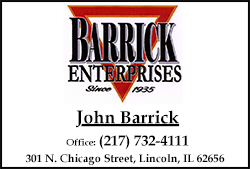|
Big Food hungry for meal
kits, despite Blue Apron IPO flop
 Send a link to a friend
Send a link to a friend
 [July 01, 2017]
By Lauren Hirsch [July 01, 2017]
By Lauren Hirsch
(Reuters) - The downsized initial public
offering of Blue Apron Holdings Inc <APRN.N>, the first U.S. meal-kit
company to go public, may have disappointed venture capital investors,
but food companies with stakes in the sector may still see returns in
the form of insight into changing eating habits.
The meal-kit investments have come as out-of-favor brands, increased
competition and pricing wars among grocers weigh on sales and
profitability at the biggest food companies.
The packaged food companies hope that the new and growing meal delivery
industry, with its detailed consumer preferences data and feedback, will
help big brands reconnect with young shoppers who have moved to new
distribution channels or abandoned staple labels for fresher, healthier
or specialty items.
Campbell Soup Co <CPB.N>, the 148-year-old Camden, New Jersey-based
packaged food manufacturer best known for its canned soups, last month
invested $10 million in El Segundo, California-based Chef'd LLC, a Blue
Apron competitor that allows users to personalize meal-kits with branded
pairings.

Even if Blue Apron and its competitors struggle to make their model
profitable and attractive to public markets, Mark Alexander, who
oversees Campbell's digital and e-commerce initiatives, expects benefits
from the relatively tiny investment for $16 billion Campbell.
"Meal kits may not turn into the biggest thing, and I think even if they
don't, we would have learned a lot about consumer shopping, food
preferences, what consumers like about bundled services and what they
don't like," Alexander said in an interview earlier this week.
Campbell has struggled with weakening demand for its core products, and
warned in May that its full-year sales could decline.
Blue Apron, the biggest meal-kit delivery company, was forced this week
to accept a valuation and public offering that were about a third
smaller than it hoped, after investors expressed concerns about its lack
of profitability, marketing costs and the impact of Amazon.com Inc's
<AMZN.O> $13.7 billion deal earlier this month to buy U.S. grocer Whole
Foods Market Inc <WFM.O>.
Blue Apron shares last traded around $9.45 on Friday, below their $10
IPO price, giving the company a market capitalization of around $1.8
billion, less than the $2.2 billion valuation of its latest private
fundraising round two years ago.
While the vast majority of investments in meal-kit companies, totaling
$1.4 billion in 2016, came from venture capital firms hoping to reap big
profits as these startups expand, a tiny fraction came from big food
companies.

Nestle SA <NESN.S> led a $77 million investment round in Freshly in
June, while Unilever Plc's venture capital arm <ULVR.L> led a $9.2
million investment in Sun Basket in May.
Blue Apron does not have any investment from a major food company.
[to top of second column] |

Blue Apron CEO Matthew B. Salzberg (C) stands on the floor of the
New York Stock Exchange waiting for for the company's IPO in New
York, U.S., June 29, 2017. REUTERS/Lucas Jackson/File Photo

While Amazon's splashy bet on Whole Foods sent jitters across the food retail
sector over its potential to revolutionize the e-commerce company's reach, the
investments in meal-kit delivery companies are a way for major companies to
carry out smaller-scale experiments as consumers move to buying food online.
Just 23 percent of Americans buy groceries online, but that share is expected to
more than triple in under 10 years, according to data provider The Nielsen
Company.
"I think Nestle and other consumer packaged good companies said we want to be
part of this new industry and understand more in-depthly how it affects our
business," said Freshly Chief Executive Michael Wystrach.
DATA LABS
Meal delivery companies rely on online registration for their services.
Customers can provide feedback on the meals and information on their
preferences, representing a valuable data trove that can be used to develop
targeting advertisement.
"We can ask people questions to help them find items and collect data that is
individual and granular. That data is different than the demographic data (at
supermarkets) because it can tell us more, such as a person's lifestyle, cooking
habits or allergies," said Chef'd CEO Kyle Ransford.
To be sure, meal-kit investments by big food companies are in their infancy, and
the value they can offer as consumer data labs is unproven. Supermarkets have
also been tracking shopping habits for years, with varying degrees of success.

And as Blue Apron's IPO shows, investors are concerned about how sticky the
meal-kit subscription models actually are, raising the risk of consumers moving
on to the next food trend before providing enough data to be meaningful.
Still, the delivery services offer a venue to quickly test new products and
ideas, in contrast to lengthy and often costly focus groups usually used by big
consumer companies.
"We have real-time response to the consumers; what do they like, what do they
buy rapidly, and what should we make rapidly. It is a real-time test market,"
said Campbell Soup's Alexander.
(Reporting by Lauren Hirsch in New York; Additional reporting by Liana B. Baker
in San Francisco; Editing by Greg Roumeliotis and Meredith Mazzilli)
[© 2017 Thomson Reuters. All rights
reserved.] Copyright 2017 Reuters. All rights reserved. This material may not be published,
broadcast, rewritten or redistributed. |